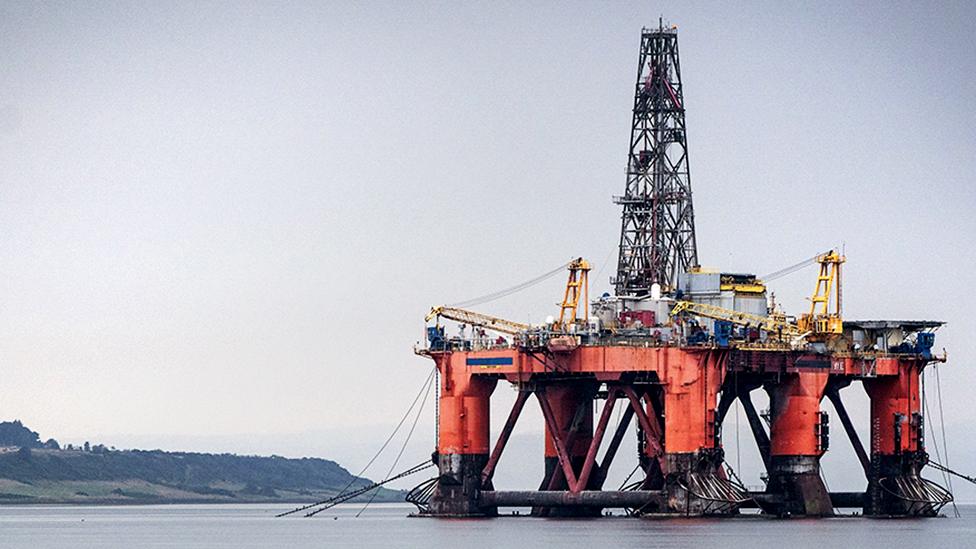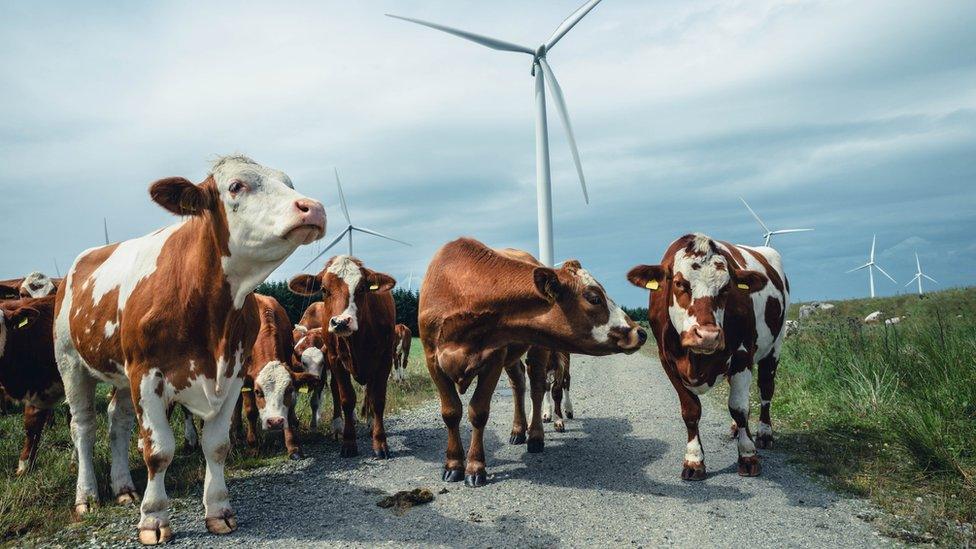Oil and gas legislation is total distraction, senior Tory says
- Published
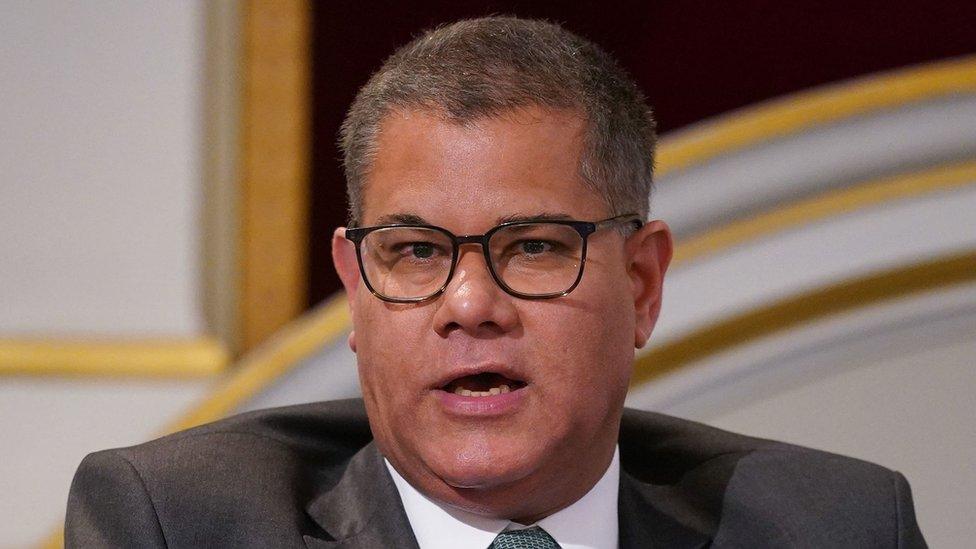
Plans to guarantee annual oil and gas licensing rounds are "a total distraction" which reinforce the idea the UK is "not serious" about tackling climate change, a senior Tory has said.
Former minister Sir Alok Sharma said he would not vote for the upcoming Offshore Petroleum Licensing Bill.
It comes after ex-net zero tsar Chris Skidmore announced he was quitting as a Conservative MP over the legislation.
The government says the plans will help strengthen the UK's energy security.
It argues the country will still need to use some fossil fuels even after it reaches net zero, and that it is better for this to be produced domestically than imported.
However, Sir Alok, who was president of the COP26 climate summit when it was hosted by the UK, said the bill was "smoke and mirrors" and "frankly changes nothing".
He told BBC Radio 4's Today programme that the North Sea Transition Authority, which is responsible for issuing licenses, could already do so when it deemed necessary and that this would not change under the new legislation.
"What this bill does do is reinforce that unfortunate perception about the UK rowing back on climate action… and not being serious about meeting our international commitments," he said.
Sir Alok criticised the government for "doubling down on granting more oil and gas production licenses", arguing the time devoted to the bill would be better spent "pushing forward on plans for a clean energy transition".
He added that the price of oil and gas was set internationally so the plans would not necessarily lower domestic energy bills, while the government could not control whether private companies sold their oil abroad or in the UK.
Meanwhile, a cross-party group of 30 MPs, including Mr Skidmore and Conservative peer Lord Goldsmith, have written to Energy Secretary Claire Coutinho urging her to drop the legislation.
In their letter, external, the group said the plans weakened the UK's claim to be a world leader in tackling climate change.
"The most effective way to bolster the UK's energy security is by increasing the supply of low-cost renewables and implementing energy efficiency measures, both of which would genuinely lower consumer bills," they wrote.
MPs had been due to vote on the legislation in Parliament for the first time on Monday, but the bill was delayed after several debates overran.
The Offshore Petroleum Licensing Bill is due to return to the House of Commons in the next two weeks.
Labour, which has said it would not allow any new oil or gas licenses if it wins power, opposes the plans.
Leader Sir Keir Starmer said the government was "wasting its time trying to pass legislation to create a dividing line with the Labour Party" and that it would not make any difference to energy bills.
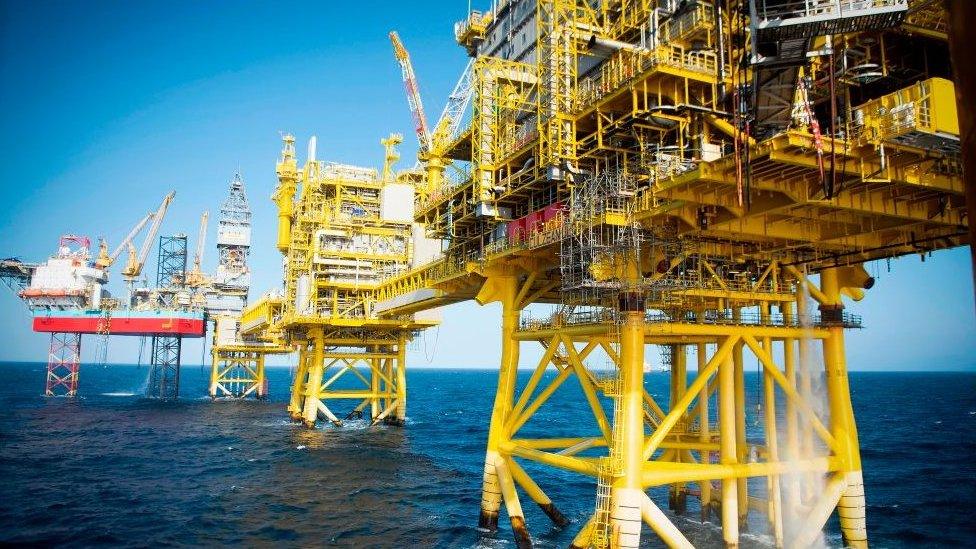
On Friday, Mr Skidmore, who led a government review of net zero, said he could not continue as a Tory MP ahead of the vote.
He said the bill would send a "global signal that the UK is rowing ever further back from its climate commitments" and in effect allow more frequent new oil and gas licenses.
Mr Skidmore has now formally submitted his resignation as an MP, triggering a by-election in his Kingswood constituency.
A Department for Energy Security and Net Zero spokesperson said: "It makes sense to make the most of our domestic supply, rather than shipping in liquefied natural gas with four times the emissions than domestically produced gas.
"These new licenses will not increase carbon emissions above our legally binding carbon budgets, but will provide certainty for industry, support 200,000 jobs and bring in tens of billions of tax that we can invest in the green transition and support people with cost of living."
Last year Rishi Sunak pushed back some of the UK's climate policies, saying he did not want to impose unnecessary extra costs on the public.
However, the prime minister said he was still committed to achieving net zero by 2050, which means no longer adding to the total amount of greenhouses gases in the atmosphere.
Related topics
- Published5 January 2024
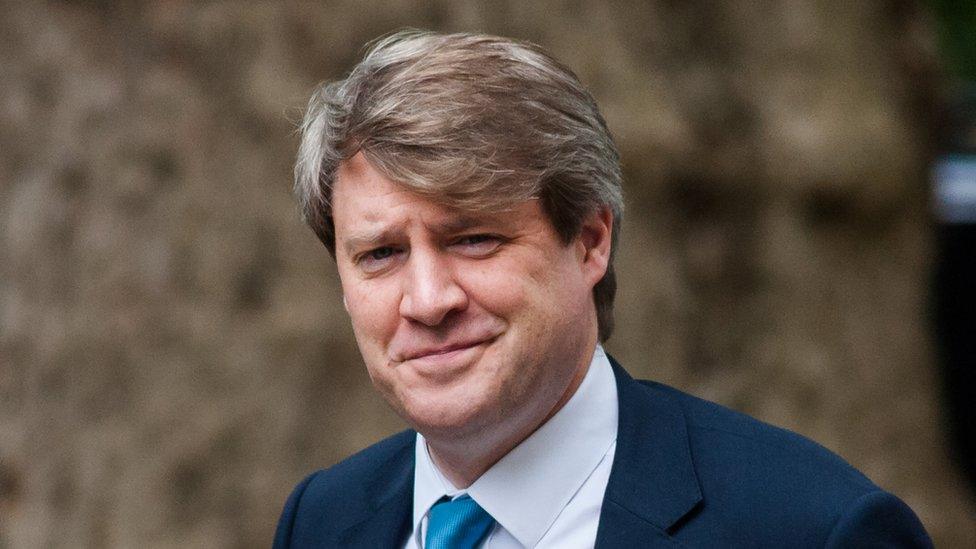
- Published6 November 2023
